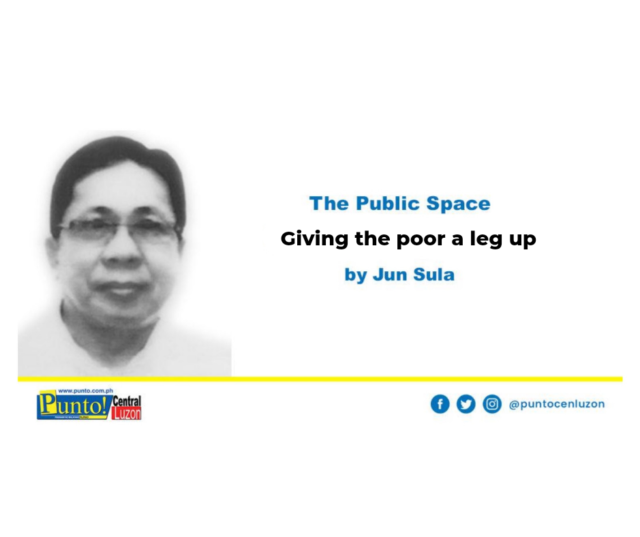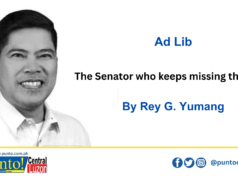THE POOR in the Philippines have a real reason – an existential one, at that – to be singing hosanna to President Duterte. The populist president has ordered that the best vaccine in town , Pfizer, be allocated for them. It used to be Sinovac, on the basis of a borrowed principle that the best antidote there is to the killer virus is what’s available. Unfortunately, by the President’s own example, Sinovac isn’t really it. He was jabbed recently ( the first dose?) with Sinopharm, the vaccine which is yet to get the government’s emergency use approval or EUA.
In any case, many Filipinos are not impressed. The number of those who are not afraid to be vaccinated hasn’t gone up yet to a higher level where experts say herd immunity is achievable. (And the recent swarming of people to a city where Pfizer was supposed to be given was a clear signal). So the virus continually succeeds like a dictator: divide, rule and infect.
The new tack using Pfizer as bait could be seen as an incentive to get the much-needed shot in the arm. But, there are, at least, two issues to resolve: 1) the vaccine needs higher (or lower) logistical requirements for the poor to have access to it (minus 20 degrees, no more, no less, in freezing temperature) and 2) the distribution of vaccine isn’t just slow, but very slow according to the presumptive presidential bet, Manila Mayor Isko Moreno.
But that should not stop the “little guy” presidential rhetoric. It’s pure and simple populism. The real problem of the poor is not poverty but the lack of aspiration, it’s been said. And seeking a vaccine with the highest efficacy rate can’t be sneezed at, especially if the President of the land has promised it. The caveat, of course, is that his jet ski ride across the South China Sea is still on a deferred mode with a little more than a year left to fulfill it.
Nonetheless, vaccine pledge exists in the realm of the possibility, though the numbers don’t have it. Officially, it has been announced that around 148 million doses of various vaccines have been procured this year for distribution throughout the country. At that volume, herd immunity is already achievable, potentially giving 70 million Filipinos two doses. But Pfizer is only one of them. Logically, some poor among the poor, will have the preferential treatment. So how will that be implemented. Consider that, for one thing, elections are just around the block.
Politicization of the vaccine, not just Pfizer, should be part of the vaccination landscape between now and the polls. It’s inescapable because this a country where the poor still outnumber the rich and, therefore, populism easily has its sway among the most vulnerable of the populace.
Among the most popular exponents of this brand of politics was the late President Ramon Magsaysay., the champion of the masses. “Those who have less in life, “ he is remembered as saying “should have more in law”. Duterte’s own version is simpler and more direct: the poor should get the best there is town. Except that, when you come down to his so-called war on drugs, the poor appears to be at the receiving end. So much about consistency.
“If you wish to have the sympathy of the broad masses,” Adolf Hitler once said, you must tell them the crudest and most stupid things.” That includes jokes and tweets, which can be policy or not, depending on how one interprets them , at their own peril.
The late dictator Ferdinand Marcos was also a populist. He decreed an emancipation of Filipino land tillers from lands owned by the rich through a presidential decree that gave them ownership of a portion of it. It was a populist-driven policy at land reform that had long been stalled by those in power. And the poor exulted beyond measure at the expense of the hacienderos, only to sell the lands back to their owners for lack of the means to sustain ownership, not the lack of aspiration.
The current pandemic has given a broader platform for the populist politicians like Duterte. If you listen to experts, it’s not good in the long term. Despots have risen in various parts of the globe like virus.
The willingness by politicians to say what the public wants to hear, or the willingness by a large part of the public to believe what they are told by populist politicians undermines public discourse, a political analyst concludes.
Duterte is riding high on an unprecedented public approval rating on the basis of being a populist president. It scares the wit out of Vice President Leni Robredo who’s keeping her card close to her heart about running for the post next year. Instead, she believes there should only be one opposition candidate to whoever Duterte anoints to replace him. And even that is not seen as a guarantee but a fighting chance.
And Duterte’s feisty daughter Mayor Sara of Davao is way ahead of the pack among presumptive bets in 2022, according to surveys. Unfortunately, fake news thrives well in an atmosphere of populism. How the opposition will handle that will be another formidable challenge. It was a strategy that worked for Duterte during his presidential campaign. It can work again, expecially with ABS-CBN squatting in another network.
In the meantime, all is quiet in the South China Sea row. The Pfizer promise has yet to be fulfilled. The 148 millions doses of vaccines of mixed brands are still a pie in the sky. The government is trying to reinvent the wheel by doing a brands match or mix experiment. It looks like that the possibility is there the virus will just disappear or go back to where it came from before every poor Juan in this country will get the existential jab.
The opposition should find an antidote to populism. Or forget 2022.





